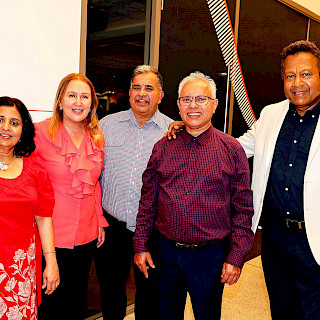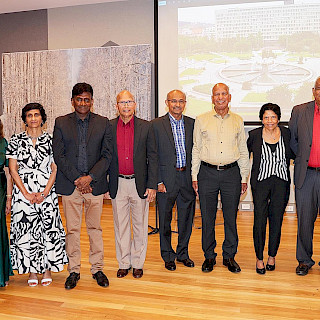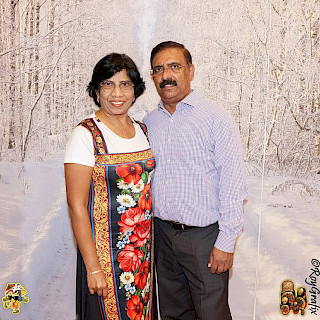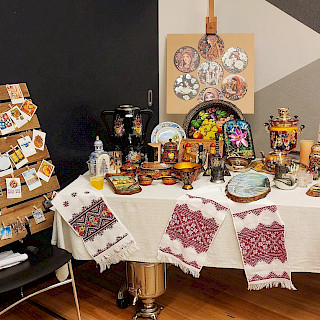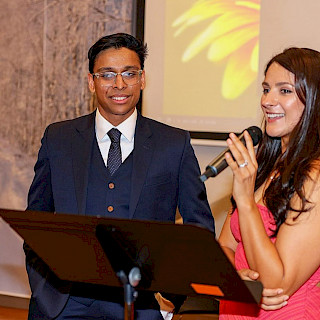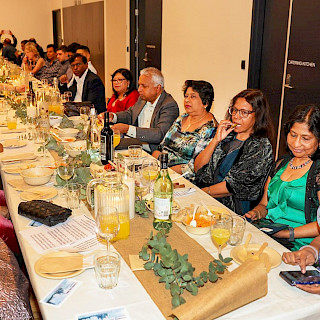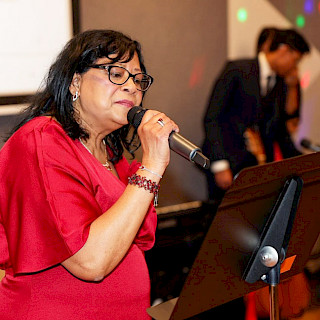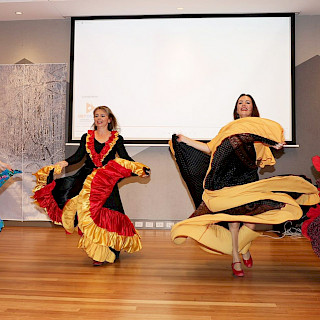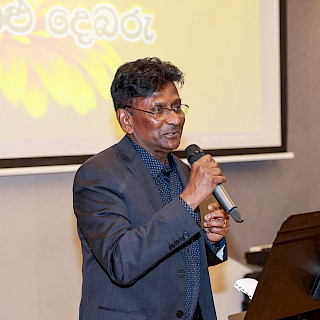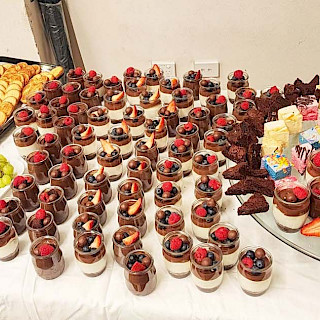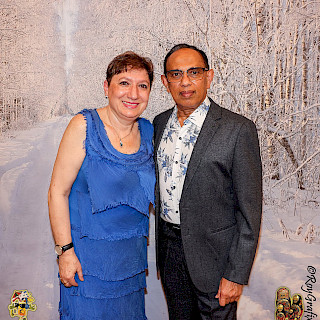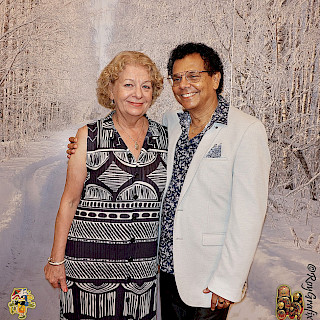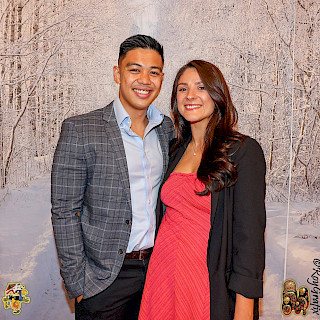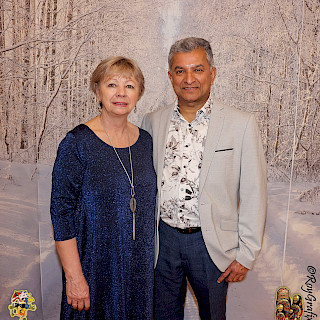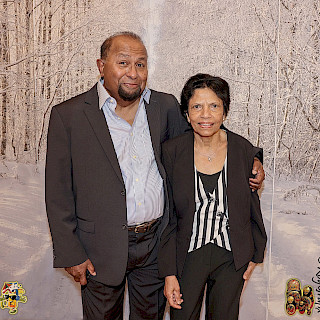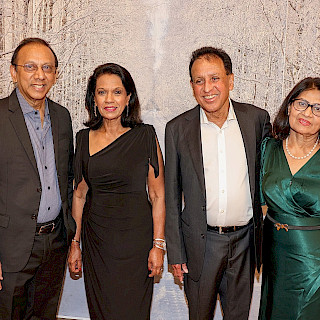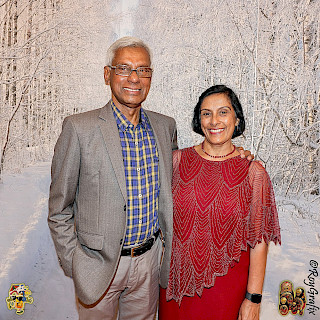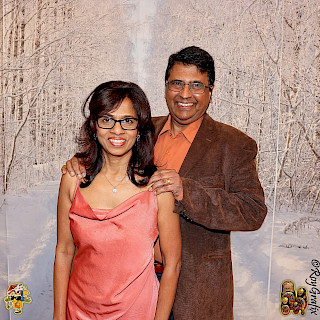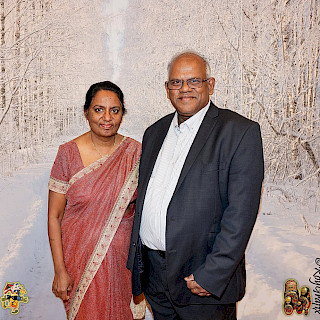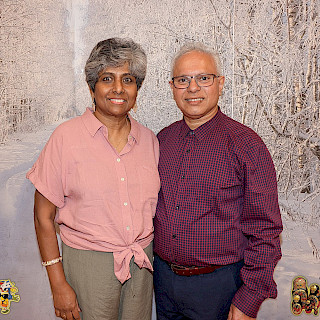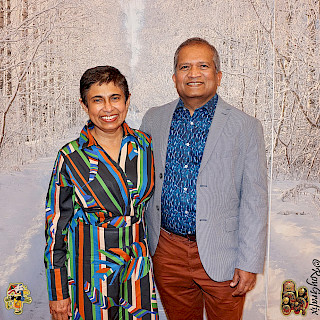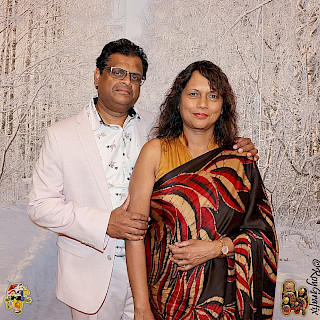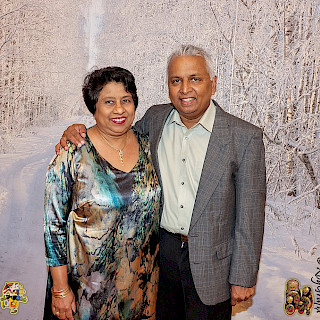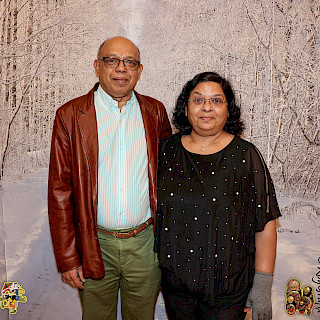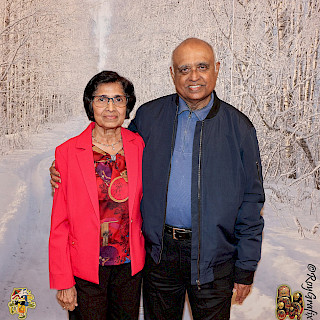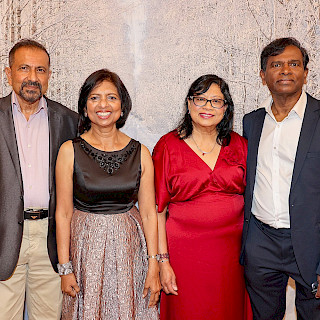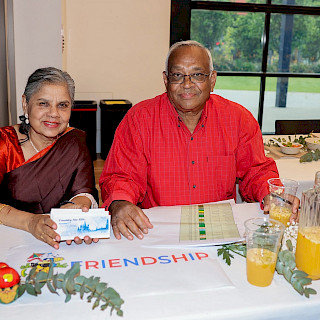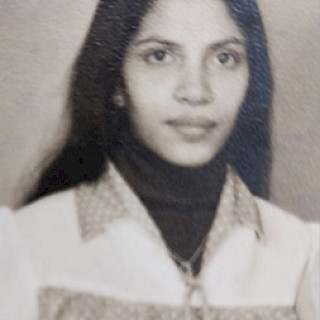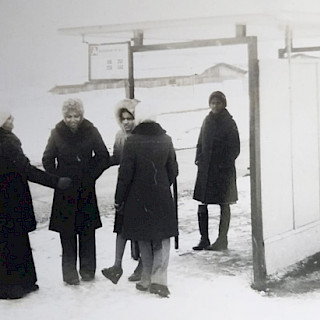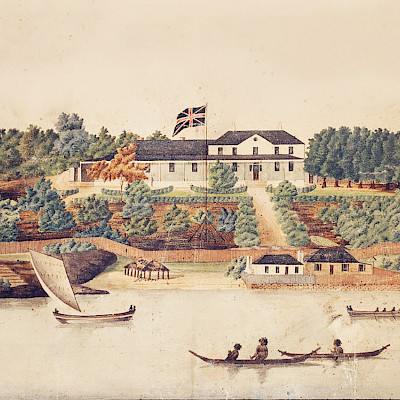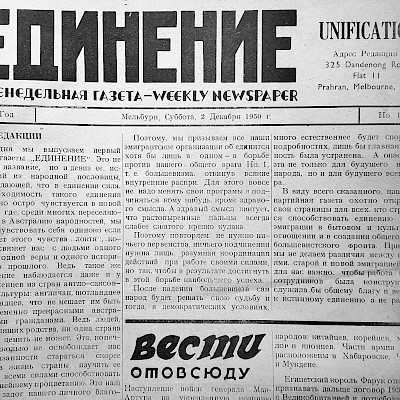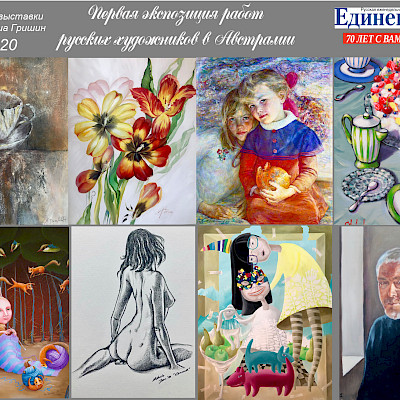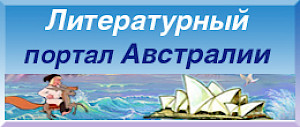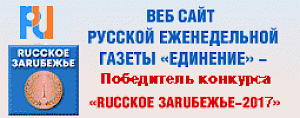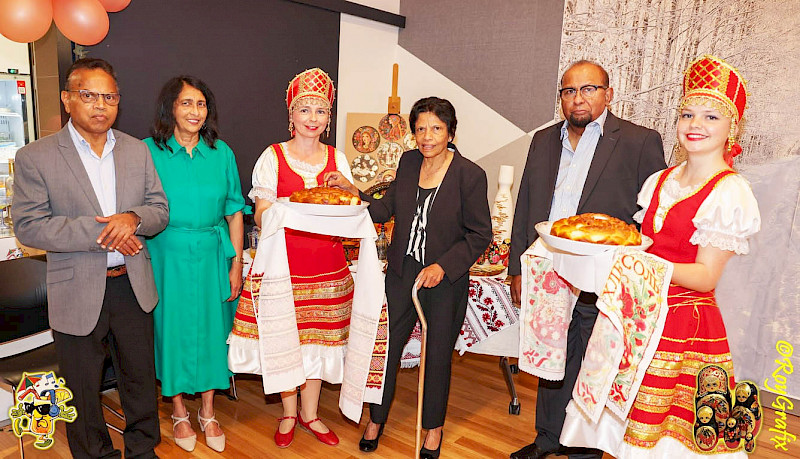
In early November, the long-awaited "Friendship Night" took place in Oran Park, Sydney, bringing together about 150 graduates from Sri Lanka who had studied at universities and institutes in Russia, Ukraine, Belarus and the socialist bloc countries. Many graduates started their own families during their studies and, having become professionals, moved to Australia. Having overcome many difficulties, they were able to build a successful career here and find their place in society, making Australia their second home.
The main organizers of the evening were Lalith and Saku Attenayaka. Graduates who studied in the USSR, post-Soviet countries and Eastern Europe, their families and friends supported their idea, and the work began. An interesting program was prepared, the Kalinka dance group and other performers were invited, and an exquisite table with traditional Russian and Sri Lankan dishes was organized. For me, this was the first experience of participating in such an event. I would like to sincerely thank the organizers - the " Friendship Night" became a real feast and was held at a high level. The evening was filled with a warm atmosphere of friendship and unity, which united all those present.
The evening began at four o'clock in the afternoon in a spacious hall with beautiful festive decoration. Particular attention was drawn to a cozy corner in Russian style, located next to the improvised stage. In the corner there was a table on which there was a painted samovar, traditional matryoshka dolls, Khokhloma dishes, embroidered towels and other souvenirs, which added a special touch to the cozy and hospitable atmosphere of the evening. Next to the table hung a large painting depicting a real Russian winter - with high snowdrifts, trees covered with frost, and a bright winter sun breaking through the frosty air.
For many graduates, this corner reminded them of their student years and became a favorite place for memorable photos. This was one of the most touching moments of the evening, filled with warm memories. I would especially like to mention at the evening the graduates who celebrated 50 or more years since entering the Peoples' Friendship University. These are Channa Wijayaratne (Mining), Harippriya Karunaratne and Saku Attanayake (Agronomy), Panduka Sumanasena and Thusitha Karunaratne (Construction), Dudley Rajapaksa and Jayantha Alwishewa (Mechanical Engineering), Kamala Khan (Philology), Mohan Seneviratne (Petrochemistry), Dailin Kularatne (Economics).
Among the appetizers on the table, of course, there was the traditional Russian salad "Olivier". A wonderful start to the entertainment program was the performance of Tilak Samarasekera, a graduate of the Minsk University, who performed two heartfelt songs. After that, the guests watched with great interest the slide show prepared by Sarat Perera. Photos of the graduates' student years took everyone back to the past, allowing them to relive joyful and touching moments. Many recalled their student years as some of the best in their lives. They remembered the warm welcome in the republics of the former USSR, where they studied, went on internships, spent their holidays and met with their fellow countrymen.
A highlight of the evening was the performance of the dance group "Kalinka", which amazed the audience with its energy. The artists performed four fiery dances, causing general delight and applause. Then, Peoples' Friendship University graduate Priyani Ganewatte, accompanied by Lucen Samarasinha on guitar and piano, performed the legendary songs "Katyusha" and "Moscow Nights". Many guests sang along with Priyani.
Next, two favorite songs in Sinhala were sung by Tisutha Karunaratne, a graduate of the Peoples' Friendship University in Moscow. "A Million Scarlet Roses" and the Sri Lankan song "In the Sky" were performed by Nirangela Abesekara, a graduate of the Astrakhan Technical University.
The culmination of the program was the ceremonial presentation of a Russian loaf of bread with a salt to the main organizers of the evening. It was baked by Marina Vodianova. The loaf was presented by girls from the Kalinka group, dressed in bright folk costumes, adding a special flavor and respect for traditions to the holiday. Then the fragrant loaf was cut into small pieces and distributed to all the guests. According to an old Russian tradition, when guests are presented with a loaf of bread, it means a wish for health and prosperity. This gesture emphasized the sincere care of the organizers for each person present and gave the evening a special atmosphere of warmth and unity.
After that, the guests were invited to the buffet, where they were treated to Sri Lankan dishes – chicken curry, fish – embul tiel, rice, noodles, vegetables with curry, fried rice and other dishes that left no one indifferent. All dishes were prepared in the restaurant “Dish”. The dessert table, decorated by master Chamat, looked like a work of art: it was decorated with juicy fruits, sponge cakes, chocolate mousse, puff pretzels and other sweets. During the dessert, one of the guests, a graduate of the Polytechnic Institute of Lviv Lal Wijesiriwardana, showed an interesting performance. Lal brilliantly performed the dance of the famous singer Michael Jackson for the guests. With the dessert, the final part of the evening began – dancing for everyone. One after another, popular songs of the 1970-80s were played – “Boney M”, “Abba”, “Queen” and many other groups. This left no one indifferent. The dancing united the guests, and it seemed that all 150 graduates were spinning at once to the rhythms of their favorite songs. A big compliment can be given to the hosts of the evening, Sanjay Yapa Bandara, the son of graduates Anand and Upendra Yapa and Karina Breva, the daughter of Sarat and Natasha Perera. Bright, charismatic, charming, they perfectly coordinated all the numbers of the program. Well done guys! "Friendship Night" became a real celebration of unity, warm friendship and pleasant memories. Graduates who had not seen each other for a long time came from different parts of Australia to reunite and remember their priceless student years. Thanks to the well-coordinated work of the organizers, the evening became a real success, leaving warm impressions and a feeling of gratitude for the cordial holiday in the hearts of the guests.
One of the evening's organizers, Saku (Saku Attanayake), agreed to tell a little about her studies in the USSR.
— Dear Saku, what do you remember most from your time studying at the Patrice Lumumba Peoples' Friendship University (RUDN) in the Soviet Union?
— At that time and until the mid-1980s, the Soviet Union was considered the second largest economy in the world. Coming from a third world country, I was able to get a very good education in the USSR, grow as a person, make many friends from different countries and have a lot of impressions. The five and a half years that I spent in the Soviet Union were some of the best in my life. — What difficulties did you encounter during your studies? — Combining my personal life and studies became a real problem for me, because I wanted to graduate with honors. In my last year, I was pregnant, and this added additional difficulties. With a large amount of academic work, I had to learn how to properly manage my time in order to keep up with everything and at the same time not harm the health of the future child.
— So, you were triply lucky - the university gave you not only an education, but also a husband and a son...
— Yes (smiles), the university gave me my husband Lalith (Lalith Attanayake). I got married in 1979, while still studying at the university, but our wedding took place in Sri Lanka. My future husband studied civil engineering at RUDN and was in his last year when I just entered the university. My husband graduated in 1975 and returned home. During my studies, I went to Sri Lanka twice for vacation. After the wedding, I returned to Moscow, already expecting a child, and in 1980 my husband and I had a son. Thus, in addition to my husband, I also received a son while studying at the university.
— Which of the teachers do you remember the most?
— The first six months, like all foreign students, I studied Russian in the preparatory course. We had a wonderful teacher Alla Nikolaevna. Friendly, kind, she always tried to help us, and not just give us knowledge. I admired her teaching method. My thesis supervisor was teacher Alla Eroshkina. She constantly looked after me, helped me write the work, and also supported me, the future mother, morally and emotionally.
— What subject can be called the most difficult?
— Statistics was a difficult subject for me. Perhaps the reason is that I found it boring and filled with complex formulas. The subject itself was not so much substantive as technical.
— What were your first impressions of the USSR?
— The first thing that impressed me was the large-scale economic development. Studying in the USSR influenced my entire life. I saw the Soviet Union as an incredibly diverse and culturally rich country. The five and a half years I spent there gave me the opportunity to learn a rich and expressive language, visit amazing places, participate in exciting events, make lifelong friends, and get to know the cultures of many peoples. The Patrice Lumumba Peoples' Friendship University was a wonderful educational institution. The teachers and students supported each other, creating an atmosphere of friendship and cooperation. No one was trying to compete here — everyone was focused on achieving their goals and helping each other. The healthcare system in the Soviet Union left only good impressions on me. During my premature birth, I received excellent medical care, treated with respect and care. It was an unforgettable experience for me. The USSR gave me not only a wonderful education, but also allowed me to develop as an independent person, expanding my horizons and changing them for the better. During my studies at the university, I visited Moldova, St. Petersburg, and one of the Black Sea resorts. I liked the Black Sea the most. It was a wonderful place where my student friends and I spent a lot of time, and it was there that I learned to swim.
— Please tell us a little about life in the dormitory.
— It was a completely new life for me, far from home and family. It was very good that all the students in the dormitory supported each other. Students from many countries in Asia, Africa and Latin America lived with me. We studied Russian together, did homework, had fun at parties, participated in celebrations, went to the cinema and theater, watched ballet, traveled to other cities of the Soviet Union, went on excursions. I remember my life in the dormitory with great pleasure. In the first year, I lived in a room with a Russian girl Lyuda and a student from one of the African countries. From the second year, my roommate was a girl from Sri Lanka. She studied the same specialty as me. We graduated together and are still good friends. Now she lives in Bendigo, Victoria, with her husband, who also studied in our group. Our group consisted of 20 students, and 10 of us attended the celebration in Sydney, as this year we celebrate 50 years since we met in Moscow in 1974.
— What Russian food did you like?
— My favorite was borscht. We called it "Russian soup". It was delicious with a piece of black bread, mustard and, of course, a glass of beer! I remember a funny incident in a grocery store. At that time, my friend and I still spoke poor Russian. We wanted to buy mushrooms, but the seller did not understand us and wrapped us up as fish. And we simply confused the words "mushrooms" and "fish". The seller tried to help us, but we could not explain what we wanted to buy, and we left with nothing.
— Did you participate in the social life of the university?
— Several times I took part in the performances of the dance group of students from Sri Lanka at various cultural events, such as the celebration of Sri Lankan Independence Day and other events organized by the university. Dancing was not easy for me, since I was not a good dancer. But despite this, I was still happy to participate. These performances brought me great pleasure and left vivid memories. — Did you do an internship during your studies? — Yes, it was mandatory. During the internship, I worked at construction sites. This helped me learn how to communicate in a work team, better understand my future profession, possible problems and how to solve them. We were treated kindly during the internship and trusted with real work. We, student interns, were happy with this trust and, of course, that we were paid for our work.
— Did you work in your profession in Sri Lanka?
— I graduated from university in March 1980 and got my first job in Nigeria in December of the same year. I went there to join my husband, who had already started working there. I was lucky to get a job as a soil science teacher at a technical college in Kaduna State, Nigeria, which was exactly what I was looking for. Later, when I returned to Sri Lanka, I worked as a research fellow at the Institute of Agricultural Research and Training in the capital of Sri Lanka, Colombo, for three and a half years.
— I would like to know a little about your family and life in Australia.
— We moved to Australia in September 1992. In my first year, I went to study at a local university, where I got a master's degree in Turf management, hoping to find a job in this specialty. However, I ended up getting a job in the civil service and worked there for 25 years - until I retired. Our son, who was born in the USSR, is now an adult, he is 44 years old. He also has a son, who will be 3 this month. They live just 20 minutes from us, and I enjoy seeing my grandson every week.
— Did you manage to visit Russia after graduating?
— In 1983, I visited Russia with my husband and son for a short visit. We met friends in Moscow and had a wonderful time. It was winter, and my little son especially enjoyed playing in the snow.
— Next year (2025) RUDN University will be 65 years old...
— We are definitely planning to go to Russia. We have already discussed with friends the possibility of organizing such a trip. It would be wonderful to attend the celebration of RUDN's 65th anniversary, and we will do everything possible to make it happen.
— Thank you very much for the interview, dear Saku! All the best to you and your family!
Alla MUNDRABY
Photos of Roy Grafix and the participants of the meeting were provided by the organizers.



